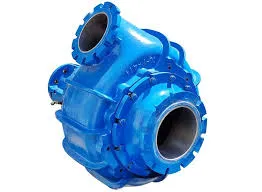Samoan
- Afrikaans
- Albanian
- Amharic
- Arabic
- Armenian
- Azerbaijani
- Basque
- Belarusian
- Bengali
- Bosnian
- Bulgarian
- Catalan
- Cebuano
- Corsican
- Croatian
- Czech
- Danish
- Dutch
- English
- Esperanto
- Estonian
- Finnish
- French
- Frisian
- Galician
- Georgian
- German
- Greek
- Gujarati
- Haitian Creole
- hausa
- hawaiian
- Hebrew
- Hindi
- Miao
- Hungarian
- Icelandic
- igbo
- Indonesian
- irish
- Italian
- Japanese
- Javanese
- Kannada
- kazakh
- Khmer
- Rwandese
- Korean
- Kurdish
- Kyrgyz
- Lao
- Latin
- Latvian
- Lithuanian
- Luxembourgish
- Macedonian
- Malgashi
- Malay
- Malayalam
- Maltese
- Maori
- Marathi
- Mongolian
- Myanmar
- Nepali
- Norwegian
- Norwegian
- Occitan
- Pashto
- Persian
- Polish
- Portuguese
- Punjabi
- Romanian
- Russian
- Samoan
- Scottish Gaelic
- Serbian
- Sesotho
- Shona
- Sindhi
- Sinhala
- Slovak
- Slovenian
- Somali
- Spanish
- Sundanese
- Swahili
- Swedish
- Tagalog
- Tajik
- Tamil
- Tatar
- Telugu
- Thai
- Turkish
- Turkmen
- Ukrainian
- Urdu
- Uighur
- Uzbek
- Vietnamese
- Welsh
- Bantu
- Yiddish
- Yoruba
- Zulu
Telephone: +86 13120555503
Email: frank@cypump.com
Oct . 19, 2024 03:26 Back to list
impeller slurry pump
Understanding Impeller Slurry Pumps A Key Component in Fluid Dynamics
Impeller slurry pumps play a crucial role in industries that handle abrasive and heavy substances, such as mining, construction, and wastewater treatment. These pumps are specifically designed to transport slurries—mixtures of solids and liquids—efficiently and reliably, addressing the challenges associated with moving such viscous materials.
At the heart of a slurry pump is the impeller, a rotating component that imparts kinetic energy to the slurry. The design of the impeller is vital, as it must withstand harsh conditions while ensuring optimal performance. Materials used for impellers often include high-chrome alloys or rubber, which provide durability and resistance to wear caused by erosion from abrasive particles.
The operational principle of impeller slurry pumps revolves around centrifugal force. As the impeller spins, it creates a low-pressure area at the center, drawing the slurry into the pump. The rotating blades force the mixture outward, converting kinetic energy into pressure, which propels the slurry through the discharge outlet. This design allows slurry pumps to handle high solids content, making them ideal for transporting materials like sand, gravel, and sludge.
impeller slurry pump

One of the key advantages of using impeller slurry pumps is their efficiency in managing challenging flow conditions
. Traditional pumps may struggle with slurries, leading to clogs and reduced performance. In contrast, slurry pumps are engineered to minimize turbulence and maintain a steady flow, ensuring consistent operation even under high viscosity scenarios.Maintenance of impeller slurry pumps is crucial to extending their lifespan and ensuring optimal functionality. Regular inspections and smart operational practices can prevent common issues such as wear and cavitation. Cavitation occurs when vapor bubbles form in low-pressure areas and collapse violently, potentially damaging the pump components. By monitoring operating conditions and implementing preventative measures, operators can significantly reduce the risk of such problems.
In conclusion, impeller slurry pumps are indispensable in various industries for their ability to transport abrasive and viscous materials effectively. Understanding their operation, design features, and maintenance needs is essential for maximizing efficiency and longevity. As industrial processes continue to evolve, the importance of reliable slurry handling solutions will only grow, making impeller slurry pumps a focal point in fluid dynamics and materials management.
-
High-Efficiency Submersible Effluent Pump for Sewage & Wastewater Solutions
NewsJul.08,2025
-
High Quality CH Warman Slurry Pump Factory - Leading Horizontal Slurry Pump Supplier
NewsJul.08,2025
-
Hot Sale Chemical Circulating Pump – Efficient & Durable Slurry Circulating Pump Solutions
NewsJul.08,2025
-
High-Efficiency Submersible Dredge Pump for Sand & Gravel Durable Dredge Slurry Pumps Solutions
NewsJul.07,2025
-
Wholesale Slurry Pump Impeller Supplier – High-Quality & Efficient Pump Parts for Enhanced Performance
NewsJul.07,2025
-
High-Efficiency Water Submersible Pumps Reliable Water Pump for Potable Water Supply
NewsJul.06,2025










